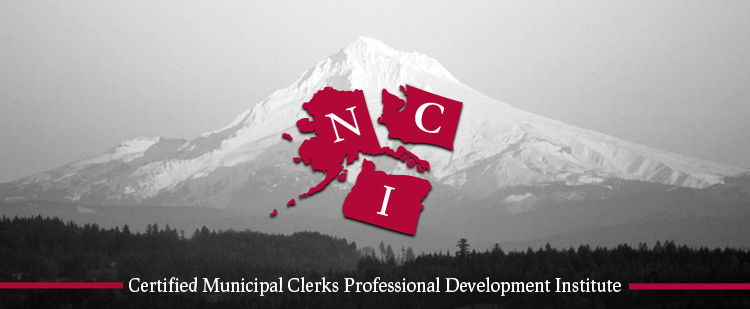Professional Development I
Kickoff-Orientation
We will kick off the week with an activity that will set a tone of fun, yet productive learning. This activity will build relationships for the week and model processes you can use when you return to your work setting.
The Role of Clerk
Explore the full spectrum of duties that are represented by the professionals we call clerks. This session will review the rich history of the clerk profession, as well as look to the future.
Building Rapport
through an Excellent Customer Experience
The
private sector understands Customer Experience (CX)—it is the key to gaining a
competitive edge. Unlike Customer Service, which focuses on a single
transaction, CX considers the customer’s entire end-to-end journey with the
organization. It is what the customer feels and thinks throughout the
duration of the relationship. By examining each customer touchpoint,
public agencies can create a positive experience and build rapport.
Rapport leads to support, which leads to funding, which leads to better
staffing, technology, and facilities, which leads to a well-functioning
government that meets (and often exceeds) its citizens’ expectations. An
important part of CX is effectively managing situations when things have gone
wrong. Building rapport involves deftness in defusing tense situations,
an openness to complaints, and a culture that is responsive to customer
dissatisfaction. In this session, you will learn to gain the competitive
edge, both at the individual level and at the organizational level, by building
an outstanding public-sector CX.
Legal Issues
This session provides an overview of current laws, revisions, rules and regulations that apply to the professional clerk. You will learn how to identify potential intended and unintended consequences of actions or inactions.
Records Management
Records are a most vital resource. They enable effective business decisions, ensure accountability, and protect the rights of the public. This course provides an overview of proven records management practices.
Jurassic Parliament
City Councils are required to use parliamentary procedure for their meetings, but many people feel unsure of the rules. In a fun, interactive workshop, learn the key elements of successful meeting management through the use of plastic dinosaurs. Learn the little-understood principles that make meetings fair and let everyone be heard. Practice making motions, amending them, voting and dealing with points of order, information and privilege in a non-judgmental and interactive role-play.
Ethics - What Your Gut is Telling You
Most
municipal clerks are ethically-driven professionals—that is what attracted them
to the role of protecting democracy. Certainly, there are always
outliers, but most municipal clerks have a trusted “gut feeling” of what is
right or wrong. Occasionally, this moral intuition is tested, especially
in the grey areas when one’s gut is unsure which way to go. This session
will examine where natural instincts come from—the moral theory behind ethical
(and non-ethical) behavior. Applying the simple formula of moral reasoning
+ virtues = ethical behavior, participants will unravel real-life scenarios of
ethical decisions gone wrong. Participants will learn how to identify
their own moral reasoning—whether principle-based or consequential-based—and
how to apply the reasoning to self-identified virtues for ethically-based
decision making.
Effective Business Writing and Writing Minutes and Meeting Notes
This session provides concise recommendations that help you reach your audience. Get an overview of how to layout memos, letters and other written communication pieces, including some changes in grammar that can make a big difference. Those who read meeting notes complain that minutes hide nuggets of action and decisions inside pages full of wordy, often useless text. In this session, you will learn how to condense meeting hours to minutes—minutes that meet the needs of today’s reader-in-a-rush.




